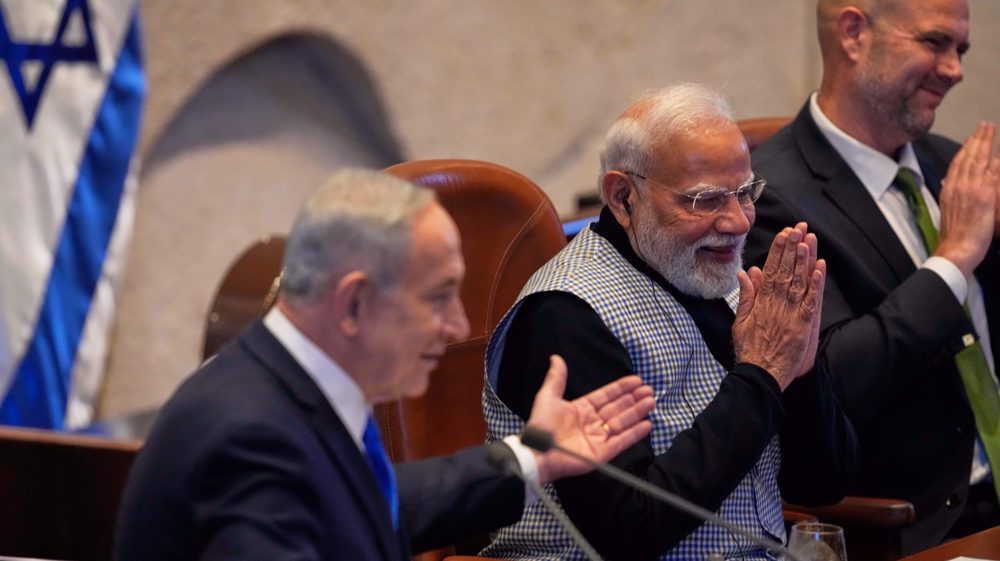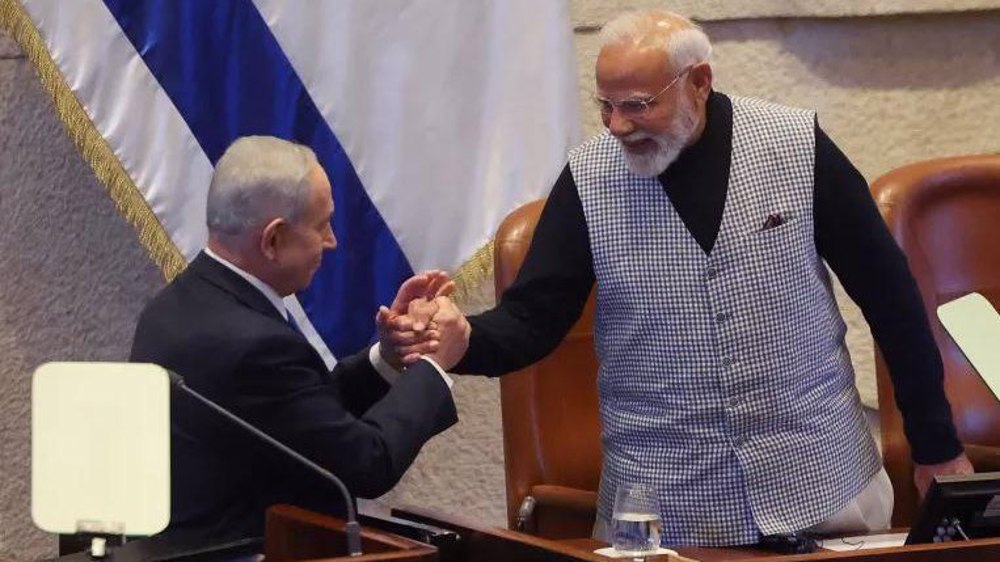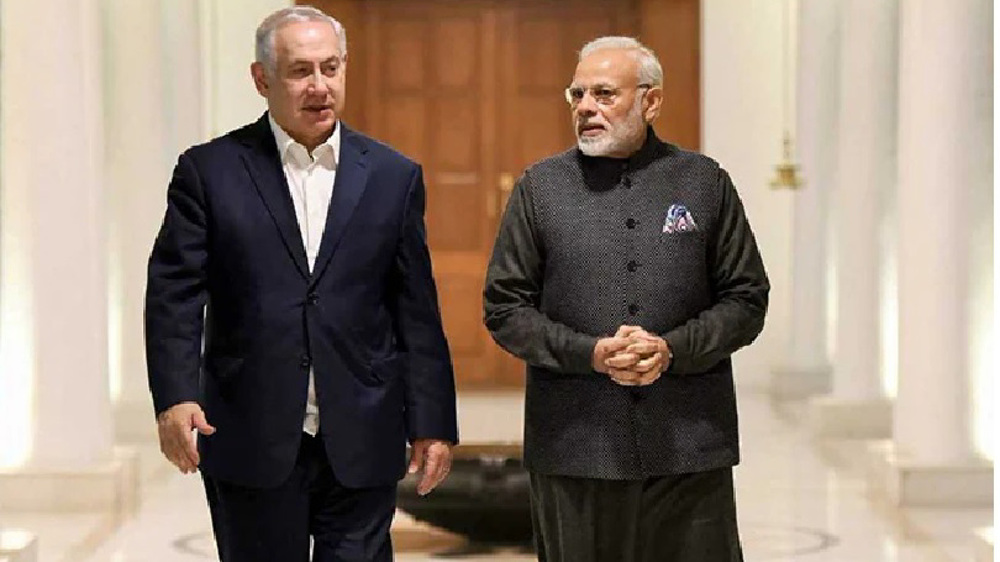More children forced to work as coronavirus batters India
More than 10 million Indian children between five and 14 toil in farms and factories, or clean restaurant tables and shine shoes, a situation exacerbated by the coronavirus pandemic.
"They were not able to have any income. So to supplement the income of the parents, the children are coming to work, they become easy targets for traffickers," Dhananjay Tingal the executive director of an NGO dedicated to protecting children was quoted as saying on Wednesday.
AFP this week accompanied Bachpan Bachao Andolan (BBA), a children's rights group whose founder won the Nobel Peace Prize, as it conducted raids together with police in New Delhi.
Early Tuesday, Syed Arshad Mehdi, a 20-year BBA veteran, walked into the auto shop and gently led Aakash (not his real name) out into the morning light.
Aakash at first denied he worked at the garage, but Mehdi turned the teenager's hands around in his own, saying softly: "Look at your hands, they are full of paint and dust."
His hands caked with paint and dust, Aakash looks right at home working at an auto repair shop -- except that he is a minor, one of millions forced into the Indian labor market.
He and 11 other boys, all believed to be aged below 18 and made to work 16-hour days for a pittance, were picked up in restaurants and a garage that night.
They were taken to the district magistrate's office, where handwritten pieces of paper numbering from one to 12 were stapled on their T-shirts as face masks hid their expressions.
Each boy was called up to a desk, where they were asked their name, age, the village and state where they had come from, how many hours they worked and what they were paid.
After health checks, a coronavirus test and help to reclaim their full wages, they will be sent back to their family homes -- often poor villages and towns across northern India.
Employers can be charged with child labour, bonded labour and trafficking, but successful prosecutions are rare.
Under the law, children under 14 are prohibited from working in most situations, while those between 14 and 18 are barred from being employed in hazardous occupations -- which includes some restaurant work.
BBA has rescued 1,200 children since April, but more and more are being sent to work because of the epidemic, the organization’s Dhananjay Tingal told AFP.
The months-long coronavirus lockdown has devastated Asia's third-largest economy and millions of Indians have lost their livelihoods.
As a result, more poor children were being pushed to take up jobs to help support their families.
Children were also seen by employers as willing to work extremely long hours for even lower pay than adults, making them open to exploitation and abuse, Tingal said.
"The conditions in the villages... are very bad," Tingal said.
"Families now need maximum hands at work to earn money. If we don't take corrective action right now, this will only worsen."
India's daily coronavirus infections slow down after scaling highs
India reported 72,049 new cases of coronavirus on Wednesday, dropping from the daily highs of last month in a sign infections were peaking for now, officials and experts said.
India leads the world in the average number of new infections and is expected to overtake the United States over the next several weeks as the country with the world’s largest number of cases.
But since it hit a single-day high of 97,894 new cases on Sept 17, the country has reported a downward trend with 75,909 daily cases on an average, according to a Reuters tally.
“There is a continuous drop in our daily new cases, which is an encouraging sign,” said health secretary Rajesh Bhushan. The overall tally reached 6.76 million infections on Wednesday while the death toll rose by 986 to 104,555.
Faced with a collapsing economy, the federal government has been pushing states to fully reopen after enforcing one of the world’s strictest lockdowns in March.
Experts said the opening up led to a spike in cases in August and September, which now may have started to stabilize in the big cities.
“The virus is slowing down in the big metros because there are a lot of people already infected,” said Bhramar Mukherjee, a professor of biostatistics and epidemiology at the University of Michigan.
A serological survey released by the government late last month showed the prevalence of SARS-CoV-2 antibodies increased to 7.1% between Aug. 17 and Sept. 22 compared to 0.73% in a previous survey between May 11 and June 4.
Mukherjee said the survey suggested that about 130 million out of 1.3 billion population may have been infected by now.
The government has asked authorities to be vigilant during the upcoming festival period including the Hindu festival of Diwali in November. It said they should cap on number of people allowed into temples, set up close circuit television to monitor crowds and not allow people to touch idols and religious books.
(Source: Agencies)
'Powerful strike': IRGC hits US destroyer with ballistic, strategic cruise missiles in Indian Ocean
IRGC: 16th wave of retaliation hit heart of occupied territories; enemy casualties stand at 680
We avenge the innocent until our last breath: Iran's parl. speaker
170 students, teachers martyred in ‘deliberate’ strikes on Iranian schools: Minister
Iran’s air defense systems down six advanced Hermes drones
US defenses overwhelmed by Iran’s drone and missile barrages: WSJ
IRGC says second US THAAD anti-missile unit destroyed
CNN journalists abducted by Israel while reporting on damage from Iranian strikes
















 This makes it easy to access the Press TV website
This makes it easy to access the Press TV website